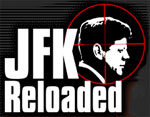In yet another move in the legitimate digital music market, BT and Blueprint have jointly developed a new service based on Blueprint’s Open Royalty Gateway (ORG) and Song Centre software that allows copyright holders to take more control of their material.
The new service for hosting, managing and distributing music and related content online, promises to accelerate the growth of the market by addressing key problems hampering the development of online music businesses, such as time to market, copyright protection, capital expenditure in IT and networking technologies, control of rights and the margin structure of the present models.
BT brings to the table IT, networking and data storage knowledge, while Blueprint offers experience in media management software and music industry relationships. Blueprint will provide the software framework and industry interface, with BT utilising its digital content hosting platform and international network to deliver a global reach.
The solution enables rights holders – artists, writers, publishers and record companies – to host their songs, videos, ringtones and other digital media files while having a direct commercial relationships with retailers. Content can be delivered directly to any number of media-enabled devices, including PCs, digital audio players and mobile phones. Of course, online-only distribution also dramatically reduces the time it takes to get digital files to market, but the system has to be successful in managing rights and digital licences, reporting royalties and sales to rights holders, and offering a wide variety of digital media to consumers using variable pricing structures.
An interesting feature of ORG is that it allows rights holders to actively manage their content, including setting business rules for pricing and location, electronic contract creation, sales tracking and royalty reporting. In addition to handling ‘major label’ music content, ORG allows independent labels and artists, many of whom control their own rights, to encode, package and upload their content to the service and then manage contracts. Blueprint will also work with retailers, letting them mix and match content to create their own offers and campaigns through a service called Song Centre.
On the other hand, the service could, however, let artists or smaller labels bypass the majors and sell their music directly to retailers or consumers. Referral and reward programmes, using viral recommendation, also means that consumers can earn back the cost of the music they purchase, by rewarding them with a commission each time one of their friends buys recommended content.
The service has already been used by EMI for Robbie Williams’ recent No.1 hit single ‘Radio’ with Australia and New Zealand’s leading music retailers, Sanity and Sounds. Audio, video, visual and mobile content was bundled together for sale, and linked into a competition utilising Blueprint’s referral and reward technology to drive additional opportunities to win prizes. The service is now powering the global Robbie Williams ‘Greatest Hits’ digital download store.
 On the eve of the 41st anniversary of John F Kennedy’s murder, a dramatic new ‘docu-game’ brought the tragic assassination by Lee Harvey Oswald to life for a whole new generation. However, a spokesman for the president’s brother, Senator Edward Kennedy, called the game ‘despicable’, but has not commented on whether the family was taking any action to stop the game’s release.
On the eve of the 41st anniversary of John F Kennedy’s murder, a dramatic new ‘docu-game’ brought the tragic assassination by Lee Harvey Oswald to life for a whole new generation. However, a spokesman for the president’s brother, Senator Edward Kennedy, called the game ‘despicable’, but has not commented on whether the family was taking any action to stop the game’s release. The opening page (example right) has a video background running on the right and a small number of highlighted options on the left hand side. The layout and links on this page change throughout the day, to match the audience that they think will be looking at it. Currently changing twice it will feature items like horoscopes and lifestyles links during the day and betting and dating in the evening.
The opening page (example right) has a video background running on the right and a small number of highlighted options on the left hand side. The layout and links on this page change throughout the day, to match the audience that they think will be looking at it. Currently changing twice it will feature items like horoscopes and lifestyles links during the day and betting and dating in the evening. Another way to access the content is via a mosaic layout (example right). This shows a checkerboard of 16 video pieces running on loops. As the viewer uses their remote control to navigate between the videos, bring it in to focus, the audio channel associated with that video loop plays. This short-form video programming is designed to draw people in to the interactive content that lies behind and on pressing the Select key takes them to the content.
Another way to access the content is via a mosaic layout (example right). This shows a checkerboard of 16 video pieces running on loops. As the viewer uses their remote control to navigate between the videos, bring it in to focus, the audio channel associated with that video loop plays. This short-form video programming is designed to draw people in to the interactive content that lies behind and on pressing the Select key takes them to the content.